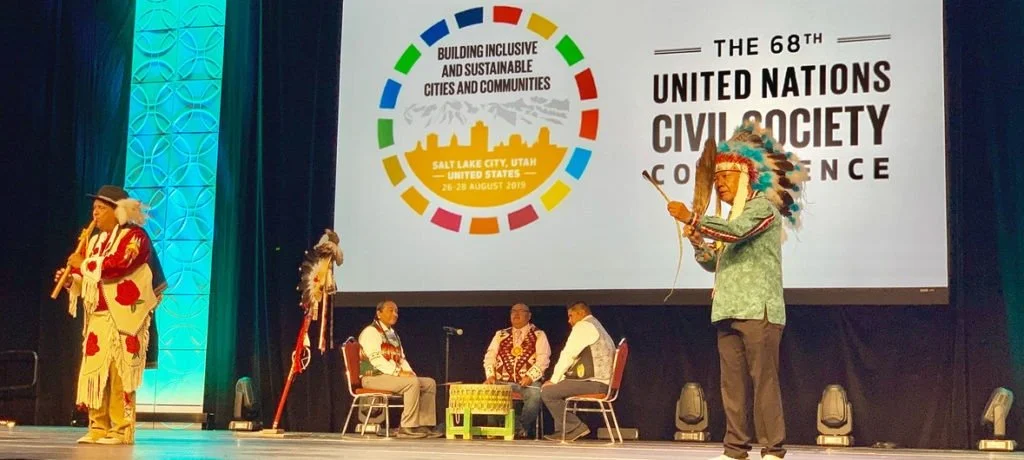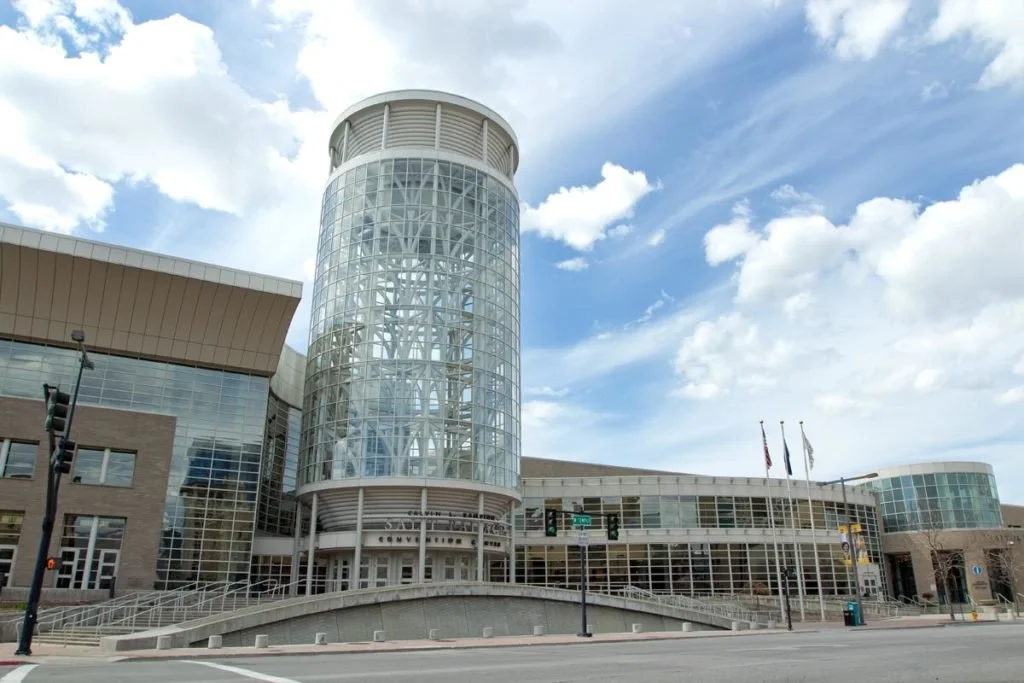Three Native women entrepreneurs will weigh in on the United Nations’ commitment to make communities economically equal places while highlighting the racial-wealth gap. The United Nations Civil Society Conference kicked off in Salt Lake City, Utah, yesterday marking an historic gathering of an estimated 6,000 people from 138 countries — the first time the conference has been hosted outside of its New York headquarters. The 68th annual event at the Salt Palace Convention Center is geared at fostering “inclusive and sustainable communities” across the world.
The effects of climate change are taking center stage at the event, though an equally critical focus on social inequalities is receiving significant attention at this year’s conference, which runs through Wednesday.
The three Native entrepreneurs who will weigh in on fostering socially just communities are: Hope Nation Co-Founder Stephanie Gutierrez (Oglala Lakota), Vanessa Roanhorse (Diné), Founder and CEO of Roanhorse Consulting, LLC, Roanhorse Consulting, LLC and Native Women Lead, and Mahrinah von Schlegel (Tewa), Executive Director of Embassy2.0. The three women will discuss how Native women are often overlooked when developing strategies to close the racial-wealth gap –– and why they should be seen as the change agents and leaders to address these disparities.

Gutierrez, who co-founded Hope Nation to assist Indigenous and rural communities through capacity building to increase community wealth, recently underscored on Twitter: “Native women are the second worst paid demographic in the nation — even though Native women-owned businesses are growing at two times the rate of their non-Native counterparts.”
A recent Native Women Lead report backs up those stats. Native American women earn about 57 cents on the dollar to the average white, non-Hispanic man — that’s significantly less than the 80 cents to the dollar that the average woman earns (when earnings of white, black, Latina, Asian, Native American, etcetera, women are taken into account). In 2017, Native Americans and Alaska Natives owned 1.4 percent of all women-owned businesses (an estimated 161,500 businesses), employing 61,300 workers and generating $11 billion in revenues. Since 1997, women-owned businesses grew by 114 percent, while Native women-owned businesses grew by 201 percent.
As Native Women Lead co-founder Roanhorse recently shared on Twitter:
[bctt tweet=”“We need feminine sovereign economies if we are to grow into a future that puts people first.”” username=”nativebizmag”]
Through her consulting business, Roanhorse encourages economic empowerment from within Native America.
The third Native female entrepreneur contributing to the conversation is Mahrinah von Schlegel, who says her professional passions lie at the intersection of technology, finance, and policy, as the necessary trifecta enabling the advancement of human potential. As the Executive Director of Embassy2.0, she is responsible for supporting the NGO’s mission to advance entrepreneurship and create targeted bi-national and multi-national opportunities to promote global technology business ecosystems, influence policy, and enable next generation startup growth.
These Native entrepreneurs are representing the powerful Indigenous female business community at the annual UN event, where innovative conversations around environmental policies and social equality will receive the attention they deserve.
“We are here to learn from each other, to share ideas and to strengthen a global coalition to transform our cities and communities to be more inclusive and sustainable,” said Alison Smale, the head UN global communications.








